Out of the bay area of Northern California, Robert Berry grew up with aspirations of becoming a working musician. A dream had by many, but fulfilled by a select few, Berry not only had his wish granted, but along the way found himself entrenched in the music industry as a singer, songwriter, and producer working alongside a list of world famous musicians. From GTR, featuring YES’ Steve Howe and former Genesis Guitarist Steve Hackett, to 3, featuring Carl Palmer and the late Keith Emerson, as well as Alliance, featuring Sammy Hagar and his son Aaron, Berry has built a very impressive résumé. Challenging himself as a musician along the way, most recently, Berry revisited his work with Keith Emerson with a follow-up to the 3’s 1988 debut album To the Power of Three, re-launching the project as 3.2, releasing The Rules Have Changed.
A collection of songs that was nearly scrapped midway through the recording, due the tragic death of Keith Emerson in 2016, Berry found the inspiration to finish what they started all while channeling his longtime friend into music. Appreciative of his many fortunes as a musician, the Grammy nominated Berry recently sat down to talk about his experience in music, working with Keith Emerson, plans for the future, plus much more.
Cryptic Rock – You have been involved in music professionally for over 40 years now. Working with artists including Sammy Hagar, Greg Kihn, and of course the late great Keith Emerson, you have certainly accomplished a lot. Briefly tell us, how would you describe your musical exploration?
Robert Berry – I’ve had a great career, with a lot of great people, and I’ve had a lot of success at it, but I don’t feel successful. I feel like I am still striving for my best work. I am very pleased with the people I’ve been able to work with, and I don’t know how that even happened. I call myself the luckiest guy you’ve never heard of. How do you wind up working with Sammy Hagar? I mean, Keith Emerson crossed the whole United States and an ocean to work with me. It’s just luck and perseverance. I think it’s about loving what I do and working my hardest to be the best at it that I can be.
I still feel like there is a lot ahead of me. I think that is the main thing that keeps me viable and creative in this business. Also, being able to write songs that aren’t resting on the one hit I had in 1988. I keep moving forward. I don’t feel successful, I just feel like I’ve had a good career and still haven’t hit where I’m going to hit. That is the best way I can explain it.
Cryptic Rock – It is great you have done so much and you still have the drive to do more. You have had a lot of great musical encounters in your career which blossomed into projects including Alliance, with Sammy Hagar, as well as 3, with Keith Emerson and Carl Palmer. What do you take away from these vastly enriching experiences?
Robert Berry – Before I worked with Keith, I worked with YES’ Steve Howe in a band called GTR. I was just a guy in a local band and I wound up in England with a manager who was handling groups like Asia and YES. I had this opportunity to possibly work with Steve Howe for my first big break. When we met, Steve and I had a great afternoon, he gave me a cassette tape with a song on it and told me, “Here’s something I wrote, take it home and see what you might do with it.” I went to my flat in London and there was a song called “You Only Have Yourself to Blame.” I thought, the guy I just spent time with, wouldn’t blame you for this problem, he would take the blame upon himself and try to fix it.
I thought, even though I’m nobody, and this guy is hugely famous in a big band, I am going to do exactly what I think I should do with this. I don’t know how it happened, but I decided, if I give something the best of what I do honestly, and they like it, we have a partnership. I gave him exactly what I would do, not in an ego way, but from experience and ideas of how I thought the band GTR would sound the best. I just gave him my vision. When I took it back to him, he loved it, gave me a huge compliment, and I thought that worked out really well. If I would have faked it, and he liked that, I would have to be faking it as long as that project lasted, that wouldn’t have worked.
That has carried through my life. I have always offered up what I think is the best solution. On the other end of that. I’m a good partner. If someone says, that’s not good, I ask the question, “What would you do then?” You don’t throw your ego in there and say, “Wer’e not going to change it,” you have to be flexible. Both of those things have been really important in my career to keep me successful and working with people. Also, I always have ideas that way, because I always let my ideas flow. You have to be prolific in this business. If you stop writing songs and stop producing new music, then all you have is your past to rest on. That is great if you have a bunch of hit songs, people seem to like to come out to see them, but for me, I want to keep moving forward.
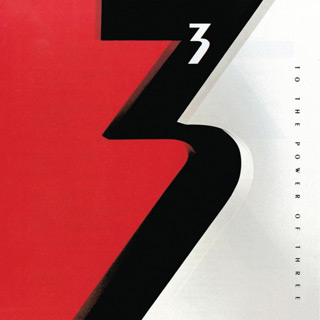
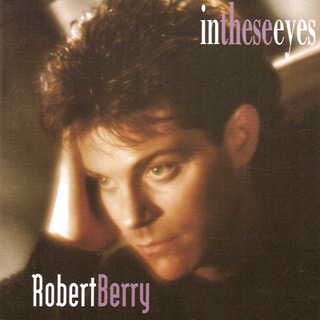
Cryptic Rock – It is very true, if you stay true to who you are, what you believe in, and your passion, that bleeds through in what you do. People can see that, especially other artists. They can tell when someone is faking it and when they’re not.
Robert Berry – You just said it much better than I did. (Laughs) That is exactly right! Again, you have to be able to be flexible in that also, not everybody is going to like 100% of what you do. You present it to them, you whittle away, hone it from there, negotiate, and come up with something genius between the 2 or 4 of you.
Cryptic Rock – Yes. Speaking of Keith, we sadly lost him in 2016. A tremendous musician, you had actually been working with Keith prior to his death on some new music for 3.2’s The Rules Have Changed. Without digging up too many raw emotions, what was your time like in those closing months when working together before his passing?
Robert Berry – That was a really fantastic experience because I had waited 27 years to do a follow-up to our first album with 3. We had a top 10 hit with the song “Talkin’ Bout,” which was a song I wrote. It was fantastic for me and I couldn’t even explain that when you go into every city, the radio is playing your song. Carl Palmer had played in Asia and he got away with doing songs with Progressive music. That is, while Keith had not done the song format with Progressive music, he was mainly known as a progressive, complicated kind of musician, a very high end guy. A couple of his fans were very rough on him – they told him he shouldn’t be doing it, he shouldn’t be playing in 3, shouldn’t have female background singers, etc. Keith took it to heart and he didn’t stand up well to criticism.
For 27 years, I didn’t ask him about doing a follow-up album. Then a record company put out a live album that we had done in Boston. When it showed up on our doorstep, Keith put it on, listened to it, and was blown away by how good we were – he really left it back in 1989 because of the criticism. When he heard how good it was, he called me up immediately and said, “Oh my god, I had no idea we were such a good band, I just really didn’t pay attention after we broke up.” I said to Keith, “Why don’t we do a second one?” He said, “Okay, let’s try it.”
Not only was it a 27 year old dream of mine, but Keith was ignited again. He was excited about it and he had lots of ideas. Again, Keith did things the way he did them, he had a style and was unique. We would mainly work by phone, Keith was 5 hours away in Santa Monica at the time. He would have his piano there with his phone on, I would have my piano in my studio with my phone on, and we would start jamming back and forth. We would talk about our plans, our future, past, what was going on, and we would write songs at the same time.
The freedom was the beauty of it, because we didn’t have to schedule the time, we just did it. It was usually after I had a studio session or after his day when he would sit at home listening to music at night with a glass of wine. We would just sit around and write music together. It was totally freeing because there were no parameters to it.
Keith had thought no one cared anymore and no one would give any money to do any album. When I got him a big advance from Frontier Music Srl, he was really blown away and excited by it. It was one of the good things happening in his life. It was a really good, fun time where we were prolific and had lots of ideas.
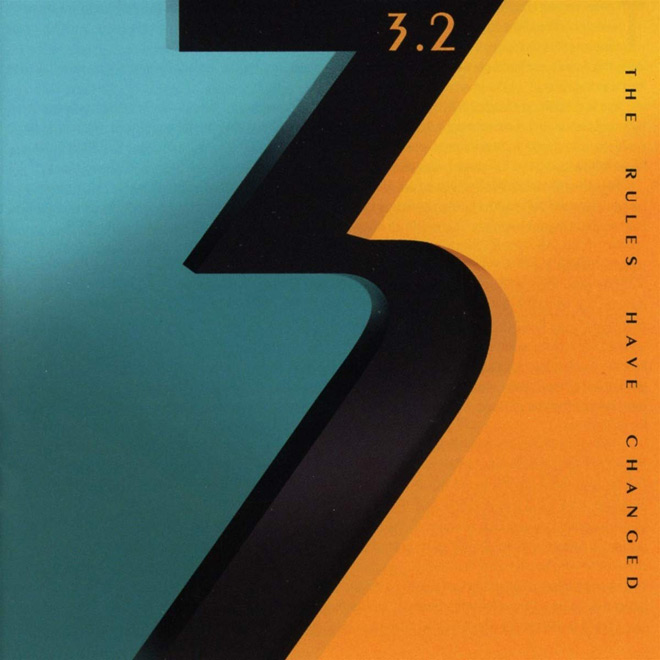
Cryptic Rock – It sounds like wonderful memories were made. The album, The Rules Have Changed, is out now and is really a great collection of music. What was the production work like for you after Keith was gone?
Robert Berry – I wasn’t going to do it. When Keith died, we were 3 months into it, and I was so excited working on it, of course with him. Then he was gone and there really was no way to finish this 27 year old dream with Keith anymore, it was depressing. I’m not a guy who really gets down, but I lost a great friend, a huge influence on me musically, a super funny, nice guy, and the world’s best keyboard player in Rock music.
Keith is a guy who inspired millions of keyboard players to play keyboards on stage. I just didn’t want to finish it. I let it sit, and then 6 months later, I had the idea, I wondered if his son Aaron Emerson would play on it. I called him and he was excited and asked me to send him a song. I sent him the first song on the album, “One by One.” He said, “Oh, that’s too hard, that’s the way my dad played, I can’t do that.”
That sort of rekindled the spark for me. I looked at it and said, we have 5 songs written and 20% of Keith’s real keyboards. We had all the writing complete on these songs, except for the lyrics I hadn’t finished up. I was going to write 3 other songs on my own anyway, because that is kind of the way we did it on To the Power of Three. I said, “I’m going to finish, just because I had this dream of doing this second album with Keith, doesn’t mean it has to be released, it just has to be done, then my dream is fulfilled.” It’s not the amount of copies that sells, or anything else, it’s actually doing the music that is the most important thing to me.
I finished it up, it took me a year to do. People know I did the keyboards, and I’m no Keith Emerson. I could never play like Keith, but I’m capable. I had 8 years of Classical piano, a couple of years of Jazz piano lessons, and majored in music in school. I am capable, but I would never compare myself to Keith playing-wise. Also, in my studio, everyday songwriters come in, and I play all the instruments on their songs. I don’t do it with midi stuff, I do it playing real instruments. I play drums, guitar, bass, and keyboards everyday. That in mind, I struggled through it for a year, finished up the lyrics, got it all together and mixed it. I got it done though.
Cryptic Rock – It is great that you finished it. The album certainly has a lively energy to it. As a follow-up to 1988’s To the Power of Three, what really inspired you to finish it up beyond wanting to include his son?
Robert Berry – Once I spoke to his son about it, and I revisited the material, and it’s kind of weird, but I felt like when I listened to it, Keith was sort of still alive with me there. When I decided to finish it, I would always say, “What would Keith do here?” What would he say about these lyrics, or filling in this part on a bass line? We had worked so much 27-28 years earlier at his house studio recording the first album, that I knew how he worked. That is really what kind of got me going. He was so alive in the tracks, I just felt him there with me finishing it.
There was no other way to bring another keyboard player or drummer in. Keith Emerson was half the writing of the first album and sound of it. I was half the writing of the first album and the voice of it. Between us, we really had the whole thing of 3. I thought I couldn’t bring anyone into that if I want it to be a real follow-up album – I have to finish it exactly the way we planned and I’m the only one who knows how to at this point. That is really what got me on the path to do it the way I did it and work at it until I felt I had fulfilled every parameter of that plan.
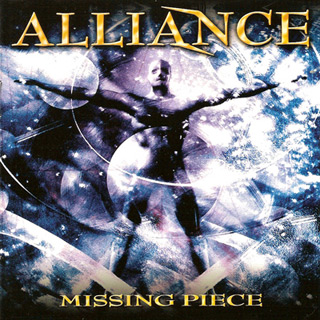
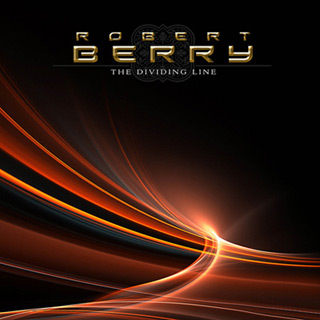
Cryptic Rock – Wow, it sounds like the work was quite intense. Beyond this new record, you also put out a new album in 2017 with the collaborative effort, All 41. Including other musicians you have known and worked with in the past – Matt Starr, Gary Phil, and Terry Brock – what inspired the All 41 project?
Robert Berry – Frontiers Music Srl puts out a lot of albums for Journey, Boston, Asia, etc. I did a solo album for them in 2008. They called me and said, “We want to do this album with these 3 other guys, we want you to be the bass player, songwriters, and one of the singers.” They put it together and said they wanted it to be more of a straight Rock thing. We sent songs around to each other, picked the songs, and went about recording them.
I thought, this is just a project and fun with a lot of great musicians. I didn’t hold out a lot of hope for it though because it was put together by the record company. Then it came out and the reviews were really good, I was kind of astounded. I knew it sounded good and everyone put their heart into it, but I wasn’t expecting that. I had never been in a put together band before. It was a different kind of deal to be involved in where the record company picks the guys because they think they will sound good together.
It just so happens that Serafino Perugino, the president of Frontiers, is such a music fan that his ideas work pretty well together. It’s not that I didn’t take it seriously, I just didn’t think of it as a real band, but then it came together and it was. It was cohesive and had all the things a real band would have, it was just put together by a record company executive.
Cryptic Rock – Serafino has done that with a few artists for other projects and it works! With all this new music in hand, what do you have planned for 2019?
Robert Berry – I wasn’t expecting to take 3.2 and the music on tour, but once it came out and hit Amazon, it sold out in 5 countries by noon on release day! I got a call from a manager who said, “You are onto something here, this is a great album, you have to put this on the road.” I thought he was kidding me, but he said, “No, you have to get this music out in front of people.” He said, “Plus you have all this music you did with the first 3 albums, then GTR with Steve Howe, you need to do 30 years of Prog through your eyes and put this on the road.” I said okay, so right now we are working on it. I am starting to get some players together and we are going to put it on the road in 2019!
Cryptic Rock – That is fantastic to hear. With the follow-up album for 3, and now a pending tour, this has to be a really pleasant surprise for you.
Robert Berry – That’s a good observation. It really is. In my Progressive career, I toured with Keith and Carl in 3, but the rest of it has never been played in front of people. I never really thought about playing in front of people, it’s very hard. There are a lot of critically acclaimed tracks, GTR stuff that people always wanted to hear, because a lot of the stuff was on a second album that never came out. There are bootlegs out, so they know the music, but they never heard it live. All of a sudden it is kind of a dream come true. I never thought I would do my 30 year history in Progressive music in front of people. I told the manager, “Book 300 seat places, I don’t want to play in big places. I want to sign the CD, I want to shake people’s hands. I want it to be a grass-roots thing.” If I’m going to do this, something I thought I never thought I’d do, I want it to be personal.
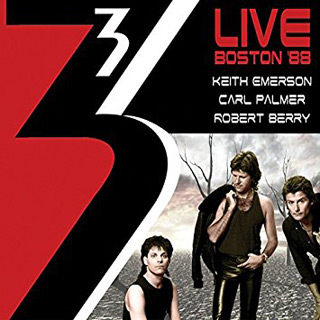
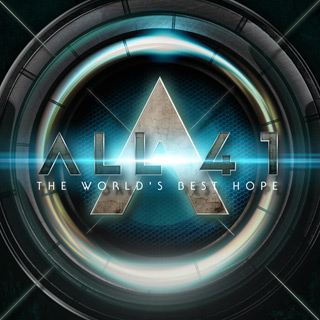
Cryptic Rock – It will be exciting to see tour dates announced in 2019. Last question for you. We cover movies as well as music, particular Horror and Sci-Fi. If you are a fan of either genre, do you have any favorites?
Robert Berry – I am. When I first started in my twenties, a high school near me was doing a movie called The Milpitas Monster (1976). They kept the budget going, got a pretty good director, and camera crew, it’s a terrible movie, but it’s still around. (Laughs) It’s a real Horror film about a monster who comes out of a garbage dump and terrorizes a city. It got me going in soundtracks though.
Most of the movie work I’ve done has been in trailers. I had a friend who worked at Miramax before, now Paramount Pictures, and I have done trailer music for movies. A lot of times I would do sound-alikes even. For example, they want to use Foo Fighters in a movie, and they want to use their song, but in the trailer, they don’t want to pay the artist their big money. So they would call me and I would do a sound-a-like on it – something that would sound just like the Foo Fighters or something inside out of what their song was so they wouldn’t have to pay royalties. I’ve done all kinds of them – from the 60s’, like The Zombies, to something out of the 2000s, there are sound-alikes that sound just like the original. I am so busy all the time though now, I barely watch TV or go to movies, although I love to. I am just busy working all the time on music.
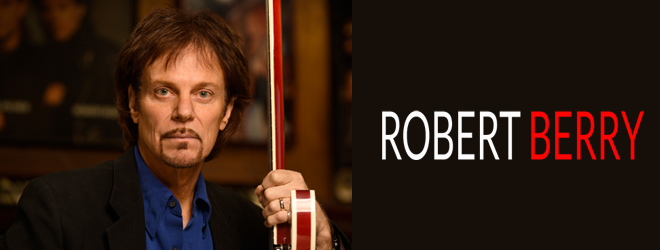
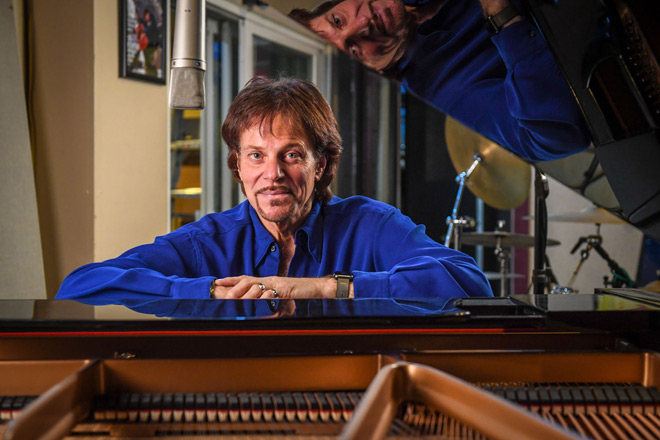

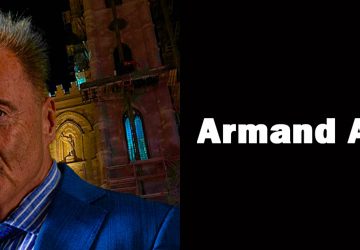


No comment